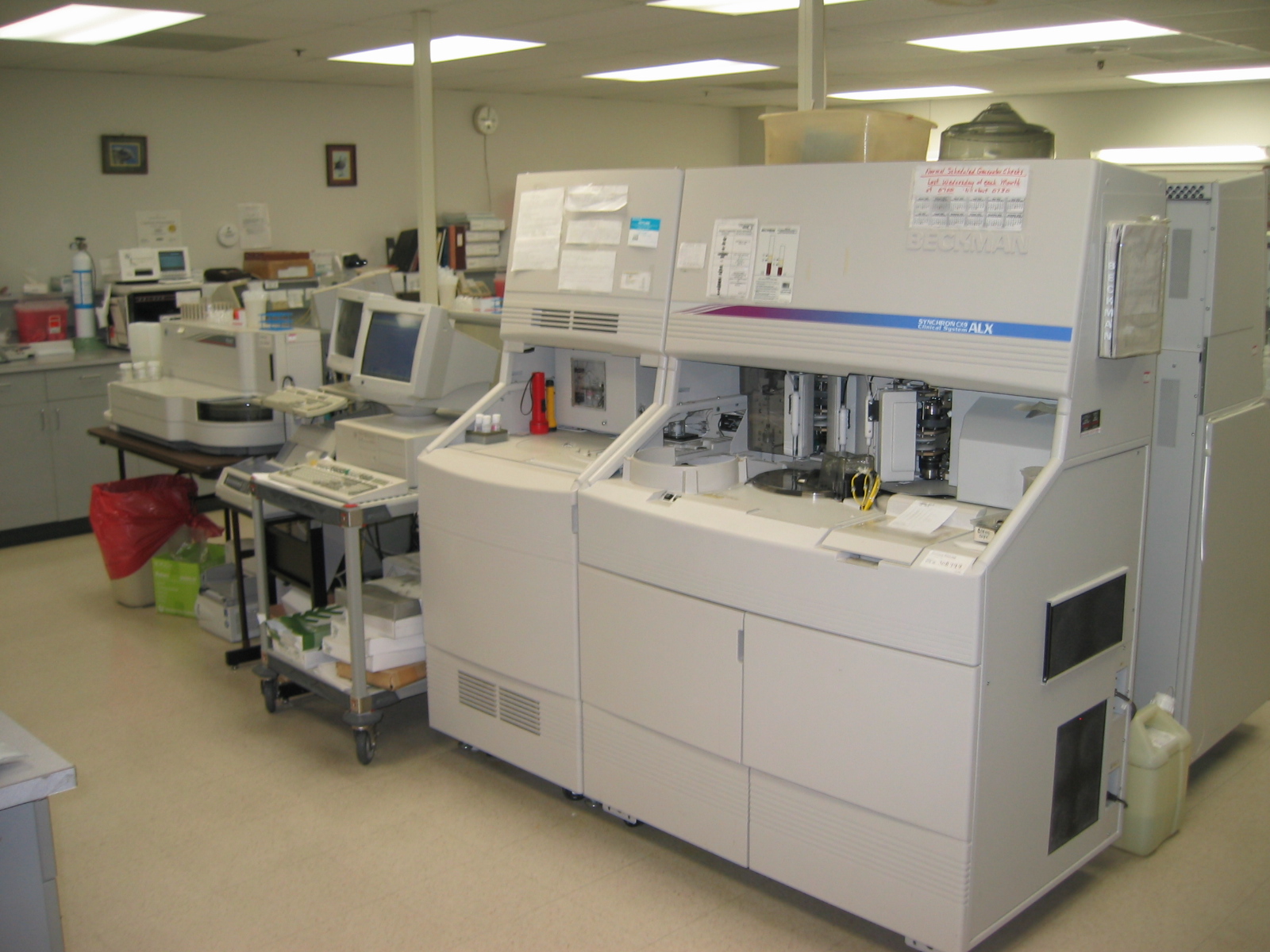|
Immediate Jeopardy
In healthcare in the United States, immediate jeopardy (IJ) is a term for situations in which a medical entity is noncompliant with regulations and requirements in a way that has placed the health and safety of recipients in its care at risk for serious injury, serious harm, serious impairment, or death. Immediate jeopardy, and the noncompliance that created it, carries the most serious sanctions for entities. To qualify as immediate jeopardy, a situation must be clearly identifiable due to the severity of its harm or likelihood for serious harm and the immediate need for it to be corrected to avoid further or future serious harm. Immediate jeopardy warnings are most often applied to nursing homes, but can be applied to hospitals and other providers, suppliers, or medical laboratories. Following a periodic survey of an entity and a thorough investigation, the Centers for Medicare & Medicaid Services (CMS) or a state health agency acting on behalf of CMS may issue an immediate jeo ... [...More Info...] [...Related Items...] OR: [Wikipedia] [Google] [Baidu] |
Healthcare In The United States
The United States far outspends any other nation on health care, measured both in ''per capita'' spending and as a percentage of GDP. Despite this, the country has significantly worse healthcare outcomes when compared to peer nations. The United States is the only developed nation without a system of universal health care, with a large proportion of its population not carrying health insurance, a substantial factor in the country's excess mortality. Healthcare is provided by many distinct organizations, made up of insurance companies, healthcare providers, hospital systems, and independent providers. Health care facilities are largely owned and operated by private sector businesses. 58% of community hospitals in the United States are non-profit, 21% are government-owned, and 21% are for-profit. According to the World Health Organization (WHO), the United States spent $9,403 on health care per capita, and 17.9% on health care as percentage of its GDP in 2014. Healthcare cover ... [...More Info...] [...Related Items...] OR: [Wikipedia] [Google] [Baidu] |
Nursing Home
A nursing home is a facility for the residential care of elderly or disabled people. Nursing homes may also be referred to as skilled nursing facility (SNF) or long-term care facilities. Often, these terms have slightly different meanings to indicate whether the institutions are public or private, and whether they provide mostly assisted living, or nursing care and emergency medical care. Nursing homes are used by people who do not need to be in a hospital, but cannot be cared for at home. The nursing home facility nurses have the responsibilities of caring for the patients' medical needs and also the responsibility of being in charge of other employees, depending on their ranks. Most nursing homes have nursing aides and skilled nurses on hand 24 hours a day. In the United States, while nearly 1 in 10 residents age 75 to 84 stays in a nursing home for five or more years, nearly 3 in 10 residents in that age group stay less than 100 days, the maximum duration covered by Medic ... [...More Info...] [...Related Items...] OR: [Wikipedia] [Google] [Baidu] |
Hospital
A hospital is a health care institution providing patient treatment with specialized health science and auxiliary healthcare staff and medical equipment. The best-known type of hospital is the general hospital, which typically has an emergency department to treat urgent health problems ranging from fire and accident victims to a sudden illness. A district hospital typically is the major health care facility in its region, with many beds for intensive care and additional beds for patients who need long-term care. Specialized hospitals include trauma centers, rehabilitation hospitals, children's hospitals, seniors' ( geriatric) hospitals, and hospitals for dealing with specific medical needs such as psychiatric treatment (see psychiatric hospital) and certain disease categories. Specialized hospitals can help reduce health care costs compared to general hospitals. Hospitals are classified as general, specialty, or government depending on the sources of income received. A ... [...More Info...] [...Related Items...] OR: [Wikipedia] [Google] [Baidu] |
Medical Laboratories
A medical laboratory or clinical laboratory is a laboratory where tests are conducted out on clinical specimens to obtain information about the health of a patient to aid in diagnosis, treatment, and prevention of disease. Clinical Medical laboratories are an example of applied science, as opposed to research laboratories that focus on basic science, such as found in some academic institutions. Medical laboratories vary in size and complexity and so offer a variety of testing services. More comprehensive services can be found in acute-care hospitals and medical centers, where 70% of clinical decisions are based on laboratory testing. Doctors offices and clinics, as well as skilled nursing and long-term care facilities, may have laboratories that provide more basic testing services. Commercial medical laboratories operate as independent businesses and provide testing that is otherwise not provided in other settings due to low test volume or complexity. Departments In ho ... [...More Info...] [...Related Items...] OR: [Wikipedia] [Google] [Baidu] |
Centers For Medicare & Medicaid Services
The Centers for Medicare & Medicaid Services (CMS), is a federal agency within the United States Department of Health and Human Services (HHS) that administers the Medicare program and works in partnership with state governments to administer Medicaid, the Children's Health Insurance Program (CHIP), and health insurance portability standards. In addition to these programs, CMS has other responsibilities, including the administrative simplification standards from the Health Insurance Portability and Accountability Act of 1996 (HIPAA), quality standards in long-term care facilities (more commonly referred to as nursing homes) through its survey and certification process, clinical laboratory quality standards under the Clinical Laboratory Improvement Amendments, and oversight of HealthCare.gov. CMS was previously known as the Health Care Financing Administration (HCFA) until 2001. CMS actively inspects and reports on every nursing home in the United States. This includes maintai ... [...More Info...] [...Related Items...] OR: [Wikipedia] [Google] [Baidu] |
State Health Agency
A state health agency (SHA), or state department of health, is a department or agency of the state governments of the United States focused on public health. The state secretary of health is a constitutional or at times a statutory official in several states of the United States. The position is the chief executive official for the state's state health agency (or equivalent), chief administrative officer for the state's Board of Health (or equivalent), or both. Following passage of the Safe Drinking Water Act of 1974, during the first ten years of the program the state health departments were given new and important roles under the law. Due to new grants available, they had enhanced their programs and had many more resources to oversee and help utilities come into compliance with drinking water standards, and they were able to develop other related activities like the capacity for doing risk assessments on new contaminants of concern. Terminology Although the vast majority of ... [...More Info...] [...Related Items...] OR: [Wikipedia] [Google] [Baidu] |
Kaiser Family Foundation
KFF (Kaiser Family Foundation), also known as The Henry J. Kaiser Family Foundation, is an American non-profit organization, headquartered in San Francisco, California. It prefers KFF since its legal name can cause confusion as it is no longer a foundation or a family foundation, and is not associated with Kaiser Permanente. KFF focuses on major health care issues facing the nation, as well as U.S. role in global health policy. KFF states that it is a non-partisan source of facts and analysis, polling and journalism for policymakers, the media, the health care community, and the general public, and its website has been heralded for having the "most up-to-date and accurate information on health policy" and as a "must-read for healthcare devotees." Current activities Policy analysis and polling KFF publishes analysis, polling and journalism about health-care issues, and states that much of its work especially concerns persons with low income or those who are otherwise especially ... [...More Info...] [...Related Items...] OR: [Wikipedia] [Google] [Baidu] |
Patient Safety
Patient safety is a discipline that emphasizes safety in health care through the prevention, reduction, reporting and analysis of error and other types of unnecessary harm that often lead to adverse effects, adverse patient events. The frequency and magnitude of avoidable adverse events, often known as patient safety incidents, experienced by patients was not well known until the 1990s, when multiple countries reported significant numbers of patients harmed and killed by medical errors. Recognizing that healthcare errors impact 1 in every 10 patients around the world, the World Health Organization (WHO) calls patient safety an endemic concern. Indeed, patient safety has emerged as a distinct healthcare discipline supported by an immature yet developing scientific framework. There is a significant transdisciplinary body of theoretical and research literature that informs the science of patient safety with mobile health apps being a growing area of research. Prevalence of adverse ... [...More Info...] [...Related Items...] OR: [Wikipedia] [Google] [Baidu] |
Healthcare In The United States
The United States far outspends any other nation on health care, measured both in ''per capita'' spending and as a percentage of GDP. Despite this, the country has significantly worse healthcare outcomes when compared to peer nations. The United States is the only developed nation without a system of universal health care, with a large proportion of its population not carrying health insurance, a substantial factor in the country's excess mortality. Healthcare is provided by many distinct organizations, made up of insurance companies, healthcare providers, hospital systems, and independent providers. Health care facilities are largely owned and operated by private sector businesses. 58% of community hospitals in the United States are non-profit, 21% are government-owned, and 21% are for-profit. According to the World Health Organization (WHO), the United States spent $9,403 on health care per capita, and 17.9% on health care as percentage of its GDP in 2014. Healthcare cover ... [...More Info...] [...Related Items...] OR: [Wikipedia] [Google] [Baidu] |




